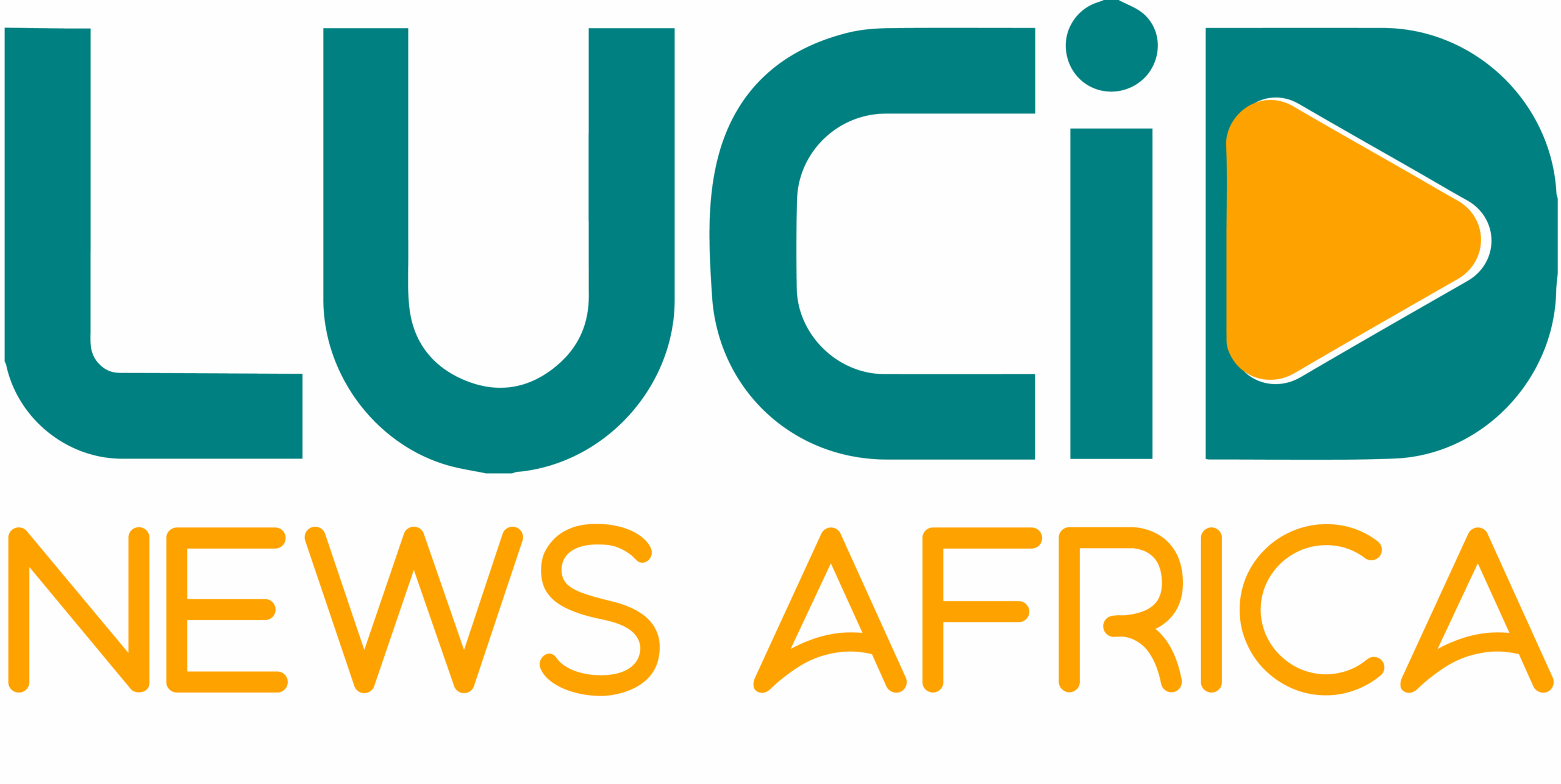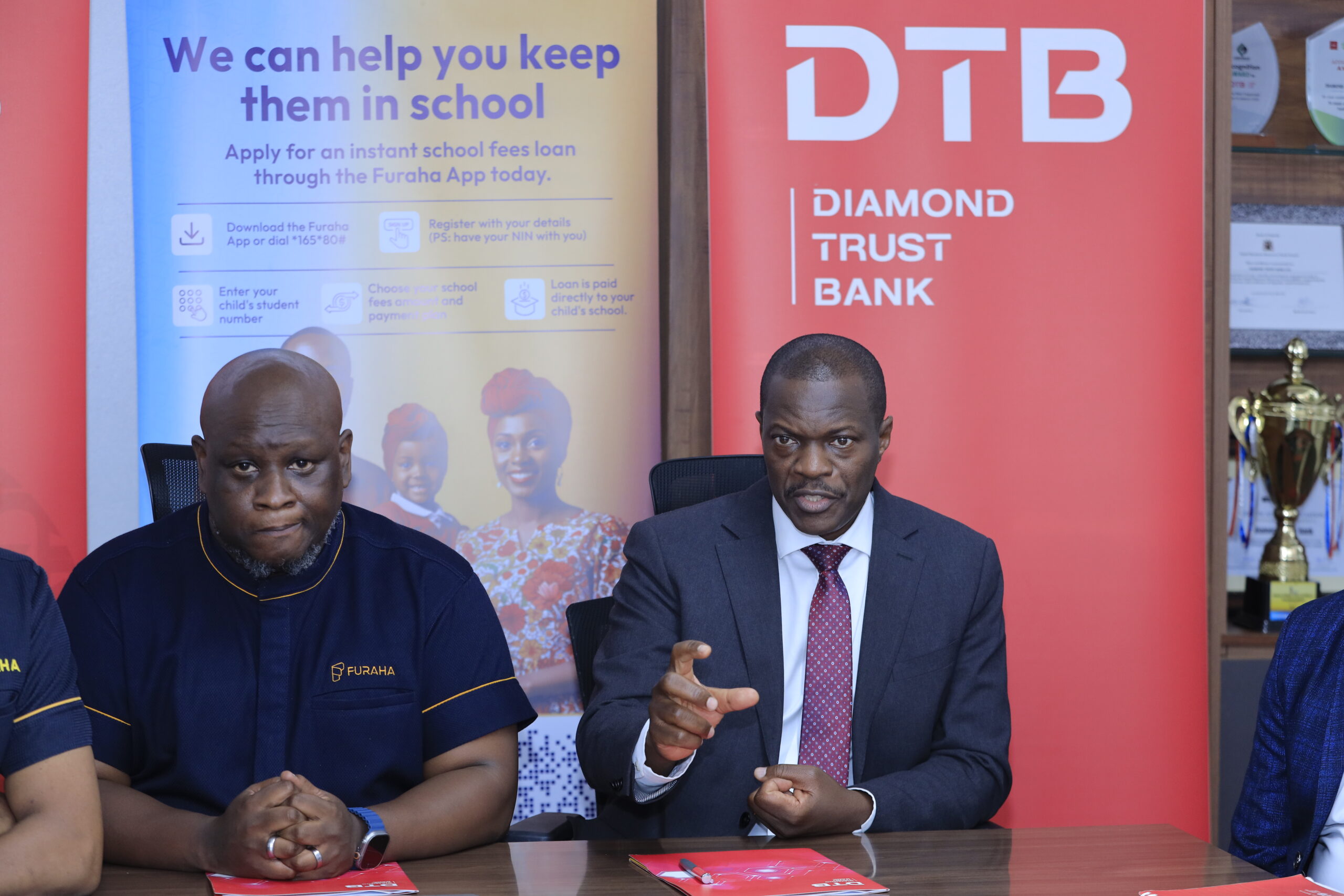They could barely afford tuition — Now their app is teaching a nation
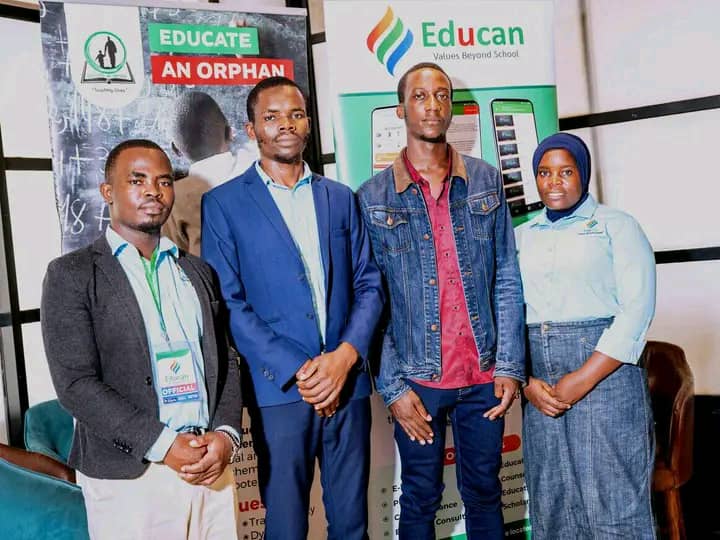
Bagooole Daniel, Ssembogga Abdul Karim, Rashid, and Nakafeero Salima (from left to right), part of the team that started Educan at a science contest.
In 2015, seven science education students crammed into a dorm room at Makerere University with an audacious dream to change how Uganda thinks about teachers, science education, and accessibility to learning. Ten years later, that dream has taken digital shape as Educan Uganda, an ambitious education startup now gaining national attention for its bold attempt to democratize learning through technology.
Founded by Ssembogga Abdulkarim Zakariyya, Bagoole Daniel, Twesige Patrick, Nyongera Pius, Luwagga Alex, Kasujja Nasifu, and Kiwanda Abraham, the group initially calling themselves “The Seven Teachers” set out to reshape perceptions about teachers and science subjects, which they saw as neglected in Uganda’s school system.
“Back then, students feared science, and teachers were often undervalued,” recalls Ssembogga Abdulkarim, one of the co-founders. “We wanted to change both narratives.”
A new name, a larger mission
By 2016, the group rebranded to Educan Uganda and registered as a company limited by shares. New members, including Nakafeero Salma and Kasujja Ahmed, joined the effort, expanding its leadership. What began as a mission to improve science education in schools quickly grew into a broader initiative focused on educational philanthropy, digital access, and mentorship.
Today, Educan Uganda runs multiple outreach programs, mentorship sessions, and academic clinics aimed particularly at students in remote or underserved communities. But its centerpiece is the Educan App, a comprehensive learning platform offering curriculum-aligned content for both primary and secondary school students.
The app features interactive lessons, textbooks, revision notes, tests, marking guides, and even past papers with solutions. Educan claims it’s more than just a digital library, it’s a full-scale classroom that students can carry in their pockets.
“The goal was always to create a school without walls,” says co-founder Bagoole Daniel. “A place where any child in Uganda; rural or urban could access quality education with nothing more than a phone.”
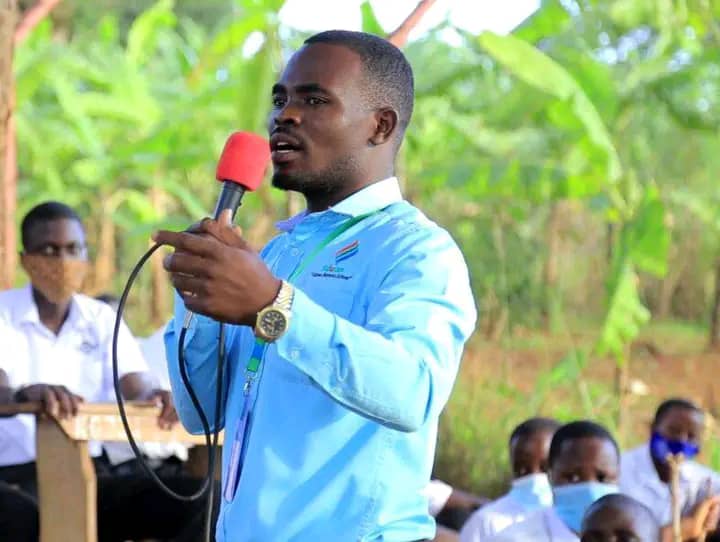
Accessible, but not free
While the Educan App is marketed as affordable, with an annual membership fee of UGX 20,000 (just over USD 5), critics have pointed out that for many in Uganda’s poorest communities, even that can be a barrier; particularly when you factor in the cost of smartphones and internet access.
“We recognize that the digital divide is real,” admits Twesige Patrick, another co-founder. “That’s why we also conduct physical academic clinics and provide printed learning materials through our outreach program. But the future is digital, and we can’t afford to leave our children behind.”
Despite these efforts, questions linger about how scalable the model is without substantial government or donor backing.
“Educan’s work is impressive, especially the integration of motivation and scholarship content into their platform,” says Dr. Harriet Nankunda, a lecturer in education policy at Kyambogo University. “But scaling this nationally will require strategic partnerships and robust policy support.”
Blending tech with motivation
In addition to lessons and study materials, the Educan App includes a motivational section featuring content aimed at inspiring students, as well as the Educan Science Contest, an annual competition with cash prizes and national recognition.
“Learning isn’t just books,” reads part of a promotional audio featured on Educan’s platforms. “Through contests and direct teacher consultations, the app creates a lively and engaging experience.”
The app also allows users to consult with teachers, attend live or recorded sessions, and purchase books or scholastic materials, positioning itself as an all-in-one educational ecosystem. Educan also provides physical book delivery services across Uganda, further blending traditional and digital education.
Challenges and the road ahead
Educan’s rise hasn’t been without setbacks. Co-founders speak candidly about early struggles: lack of funding, skepticism from educators, and the ever-present challenge of balancing vision with reality.
“We had nothing but an idea and conviction,” says Kasujja Nasifu. “We weren’t from privileged backgrounds. What we had was belief, and each other.”
As Uganda continues to wrestle with systemic education gaps, the timing of Educan’s digital-first model may be right. The COVID-19 pandemic exposed glaring inequalities in education access, and EdTech initiatives like Educan could fill that void if they remain affordable, scalable, and inclusive.
Still, Educan’s founders remain grounded.
“We haven’t ‘made it’ yet,” reflects Kiwanda Abraham. “But we have come far. From dormitories to thousands of learners on a mobile platform; that’s something to be proud of.”
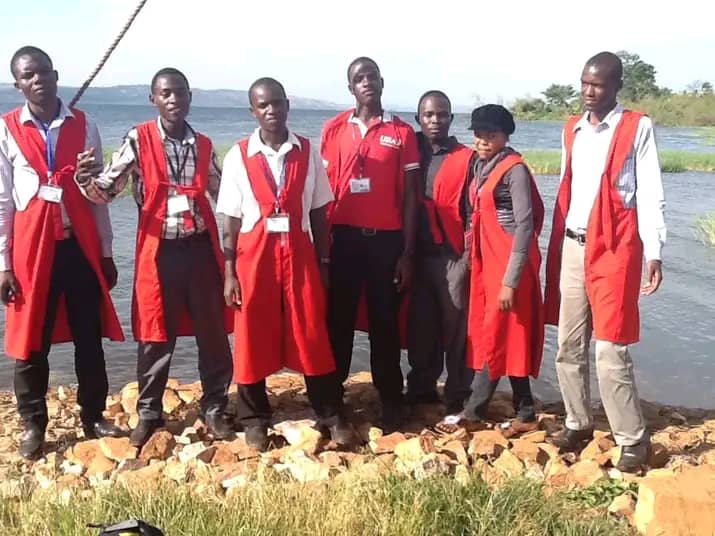
Looking forward
With growing user numbers and increasing attention, Educan Uganda appears to be at a crossroads: expand and institutionalize, or risk stalling due to financial and infrastructural challenges. The founders say they’re actively exploring partnerships with NGOs, government bodies, and international education organizations.
One thing is clear: Educan is not just selling a product, they are advocating for a philosophy of learning that extends beyond exam scores.
“Our slogan, ‘Values beyond school’, means exactly that,” says Nyongera Pius. “We are building not just students, but citizens; young people who can think critically, dream boldly, and lead sustainably.”
Educan Uganda’s dream, born in the modest halls of Makerere University, now lives in thousands of learners’ phones across the country. Whether it becomes a national solution or remains a promising innovation, its story is already a powerful example of youth-driven transformation in Africa’s education sector.
